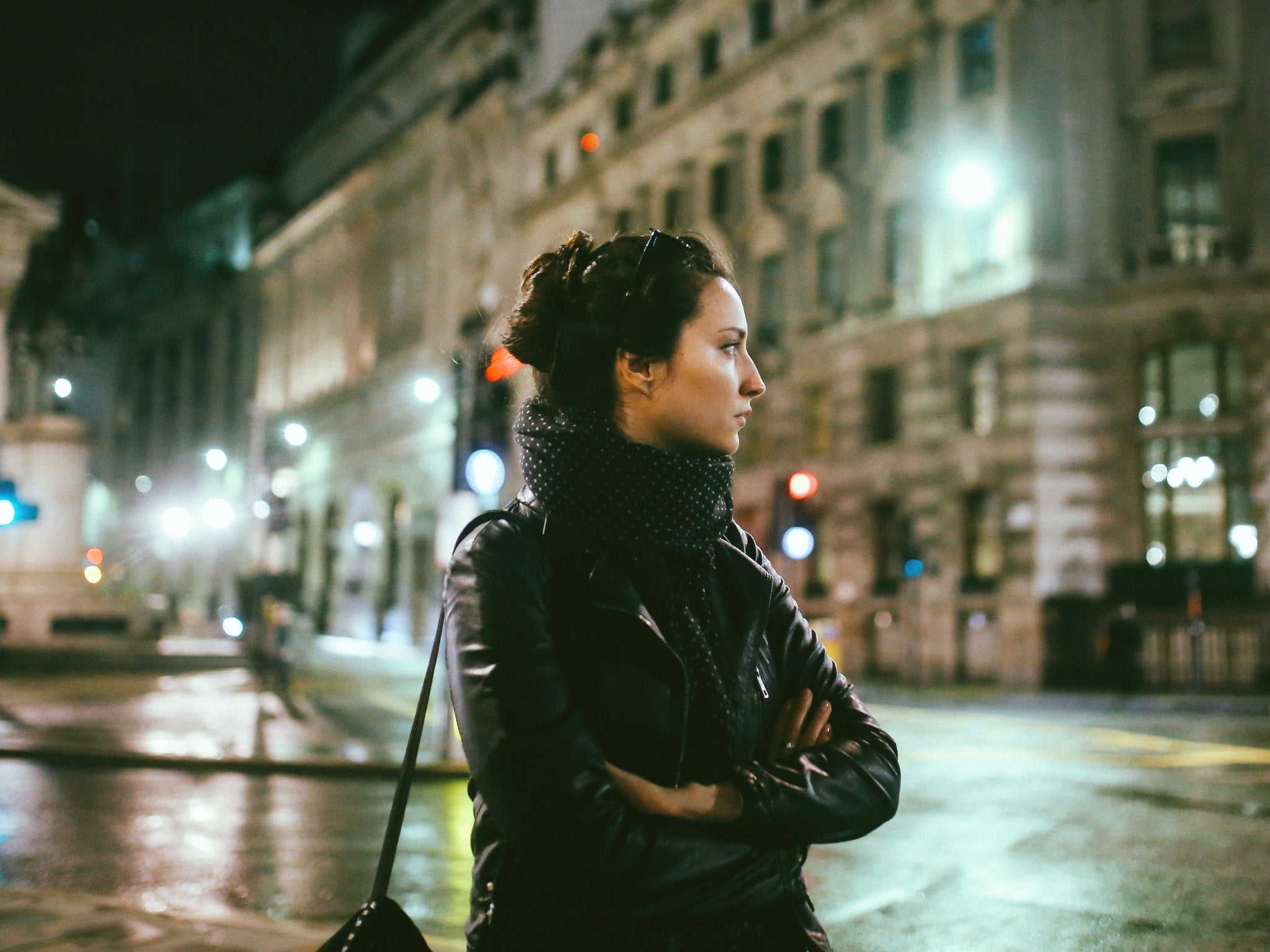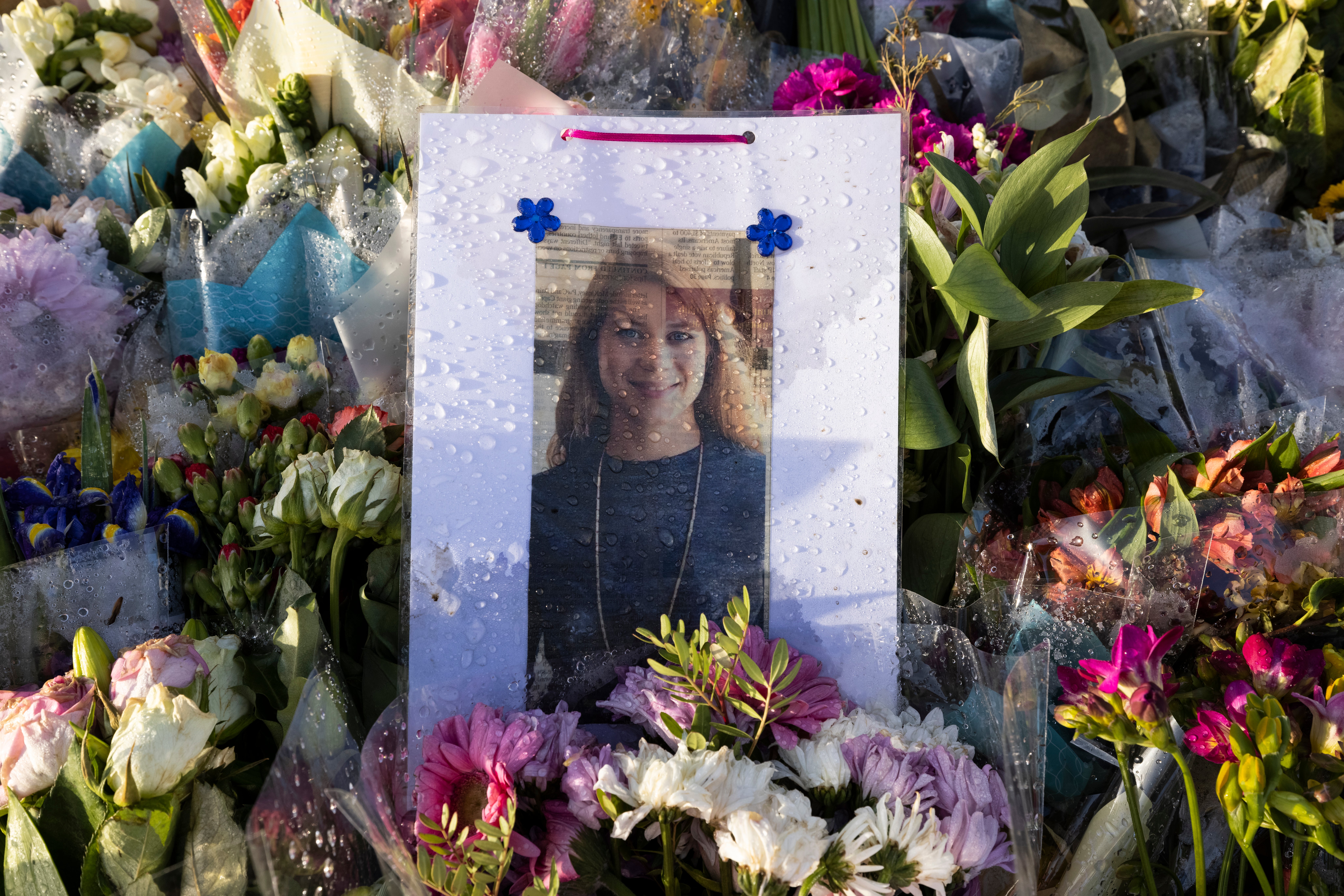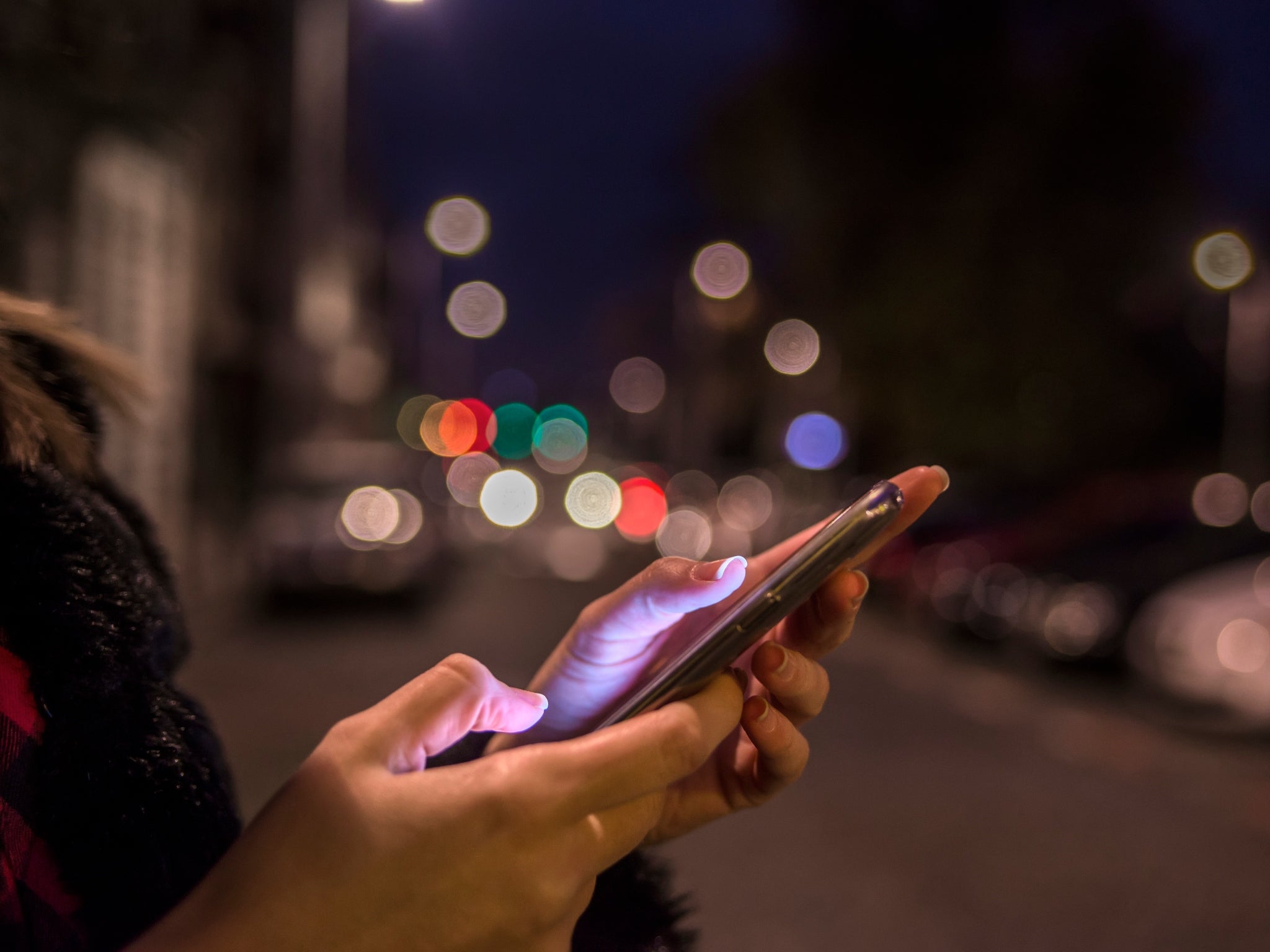Walking home after dark is a psychological minefield for women this winter
As we close on a year that’s seen a spotlight shone on male violence towards women, Laura Hampson examines why women are feeling more on edge than ever this winter


Your support helps us to tell the story
From reproductive rights to climate change to Big Tech, The Independent is on the ground when the story is developing. Whether it's investigating the financials of Elon Musk's pro-Trump PAC or producing our latest documentary, 'The A Word', which shines a light on the American women fighting for reproductive rights, we know how important it is to parse out the facts from the messaging.
At such a critical moment in US history, we need reporters on the ground. Your donation allows us to keep sending journalists to speak to both sides of the story.
The Independent is trusted by Americans across the entire political spectrum. And unlike many other quality news outlets, we choose not to lock Americans out of our reporting and analysis with paywalls. We believe quality journalism should be available to everyone, paid for by those who can afford it.
Your support makes all the difference.The first time I remember seeing her face was in a photograph plastered to a lamp post at a Brixton Hill crossing. It was Friday 5 March, Sarah Everard had been missing for just under 48 hours and her friends and family were posting missing person signs across South London. The next day I was walking with a friend through Brockwell Park when we noticed more posters dotted around. By then, news of Everard’s disappearance had rippled through social media, with people sharing and re-sharing the photograph of the 33-year-old marketing executive, desperately seeking information as to her whereabouts.
News of Everard’s disappearance was all my female friends and I could talk about. By the end of the following week her body had been found, and serving Metropolitan Police officer Wayne Couzens had been arrested on suspicion of her murder. We later learnt Couzens had falsely arrested Everard as she walked home in September. He pleaded guilty to her kidnap, rape and murder and was sentenced to a whole life order.
Suddenly, the people meant to protect us became the people we feared. Following Couzens’ sentencing, the Met advised women who suspected that a lone police officer may not be genuine call 999 or “flag down a bus” – hardly reassuring advice for a woman walking alone, especially when Couzens was a genuine officer.
Everard’s murder – as well as that of 28-year-old teacher Sabina Nessa, who was killed while walking through a South London park this September – reignited discussions around women's safety. According to the most recent personal safety release from the Office for National Statistics, one in two women feel unsafe when walking alone after nightfall in busy public places and quiet streets near their home. It also found two out of three women aged between 16 to 34 have experienced at least one form of harassment in the past year, with 44 per cent receiving unwanted sexual comments and 29 per cent feeling as if they were being followed.

Andrea Simon, director of the End Violence Against Women Coalition (EVAWC), explains that violence against women is so normalised in our society that women are “constantly” having to carry out personal safety work. This includes assessing our surroundings, researching the safest route home and sharing our location with friends. “The threat of violence alone negatively impacts women’s freedom and is an almost universal experience for women and girls,” she says.
It’s not a new thing, feeling unsafe while walking home in the dark. Women have been walking with their house keys clenched between their fingers for decades. Yet, this winter in particular seems to have sparked more concerns. While Everard and Nessa’s murders are in the forefront of our minds, there’s a set of different obstacles we have to tackle when trying to get home. London’s night Tube is slowly starting to resume, but only across a select few lines, which means we’re left with two options when deciding how to get home: an Uber or a bus. Bus timetables can be irregular at night and Uber’s prices have gone through the roof as a result of a lack of driver availability. Even when we do manage to get an Uber or a taxi home, there’s no guarantee we’ll arrive there safely.
Lauren Dudley, founder of media agency Auxo, tweeted earlier this month: “Ladies, are y’all feeling unsafe every eve? I’m used to feeling this every winter, but this year feels soooo heightened. I have not and probably will not leave the house alone after work, in the dark. I can normally force myself to take the risk. This year I physically cannot.” The tweet was liked over 200 times and received a slew of comments. “Got a taxi home from the station last night and the taxi driver waited until I got into my house,” one Twitter user responded. “Even he said ‘I wouldn’t want my daughter walking home alone at this time of night.’ It’s heavy and bloody expensive to live like this.” Another said: “I’m really feeling it. Used to go out running at past eight and now struggle to get out. It’s anxiety, I was ok before [but] now I panic.”
Sadly, we still live in a society where women are expected to make adjustments to keep themselves safe
Psychologist Lee Chambers says there are a “variety” of factors at play as to why women are feeling more uneasy about walking home at night this winter. “Sadly, we still live in a society where women are expected to make adjustments to keep themselves safe,” he explains, “which creates hyper-awareness of the potential threats that exist.” He adds this year’s highly publicised murders have only amplified these fears. Mixed with the underlying anxiety caused by the pandemic, and the fact minimal action is being taken to reduce violence against women and girls, it’s “no surprise” women are worried about walking home in the dark.
The events of the past year have also had an impact on women’s mental health. For women who have faced abuse or harassment previously, Chambers says, these events have caused feelings of hopelessness and fear to allow trauma to resurface. “There is also the sad reality that women face microaggressions every day,” he continues. “And while not as damaging in the moment, these microaggressions become like receiving paper cuts every day. When these major cases are publicised, it can feel like salt being poured into all the small cuts, bringing intense emotion and pain.”
Because little is being done to address the root cause of male violence against women, Chambers says an atmosphere of “disempowerment” has been created which reduces our perceived safety and security.
Incidents happening in public places have also led to a feeling of increased danger. Coupled with the fact that streets are still quieter than they were pre-pandemic as people continue to work from home – and aren’t returning from after-work drinks in the dark – the feeling of being a target while walking home feels heightened. Following Nessa’s murder, the Met Police reportedly published a series of safety guidelines, which included not listening to loud music, concealing jewellery and walking down streets with “good lighting”. While we can follow guidelines to a tee, there’s little you can do to stop a violent man if he wants to hurt you.

Simon from EVAWC says the “burden does not lie with women to keep ourselves safe”. Attention needs to be focused on men’s attitudes and behaviours, as well as holding male perpetrators accountable for violence against women. She explains: “Since the public outpouring of distress and anger following the murder of Sarah Everard, we’ve seen knee-jerk responses from government and our justice agencies framed around keeping women safe. This has led to piecemeal and unevidenced responses, such as increased CCTV and street lighting. But these measures will not deter perpetrators intent on targeting women and fail to address the causes of male violence against women: women’s inequality, male power and harmful beliefs around gender.”
Women and girls have the fundamental right to be free from threats of violence
She adds that measures enforced by the government aiming to keep women safe in public “wrongly reinforce” the message that women are responsible for their own abuse by being in spaces “deemed unsafe” or for not taking the right precautions. “Street harassment and threats of violence do not exist in a vacuum; they are part of a broader spectrum of violence against women and girls that spans every sphere of existence, from public spaces to the workplace, to online space to the home. Women and girls have the fundamental right to be free from threats of violence.”
If you are feeling anxious, Chambers advises to “trust your intuition” and “keep engaged”. If it all gets a bit much and you become overwhelmed, he says to “focus on slowing down your breathing”. He adds that “Projecting confidence with your body and stride can also make you feel physiologically prepared, which can also be a useful way to feel psychologically safer as you walk.”
In an ideal world, the only solution is to educate men on women’s safety and remove the onus from women entirely. For now, as we wait for the return of lighter evenings, we will continue to share our locations with our friends, hold keys between our knuckles and project confidence on our walk home, hoping we can text our friends that we made it there safely.
Join our commenting forum
Join thought-provoking conversations, follow other Independent readers and see their replies
Comments